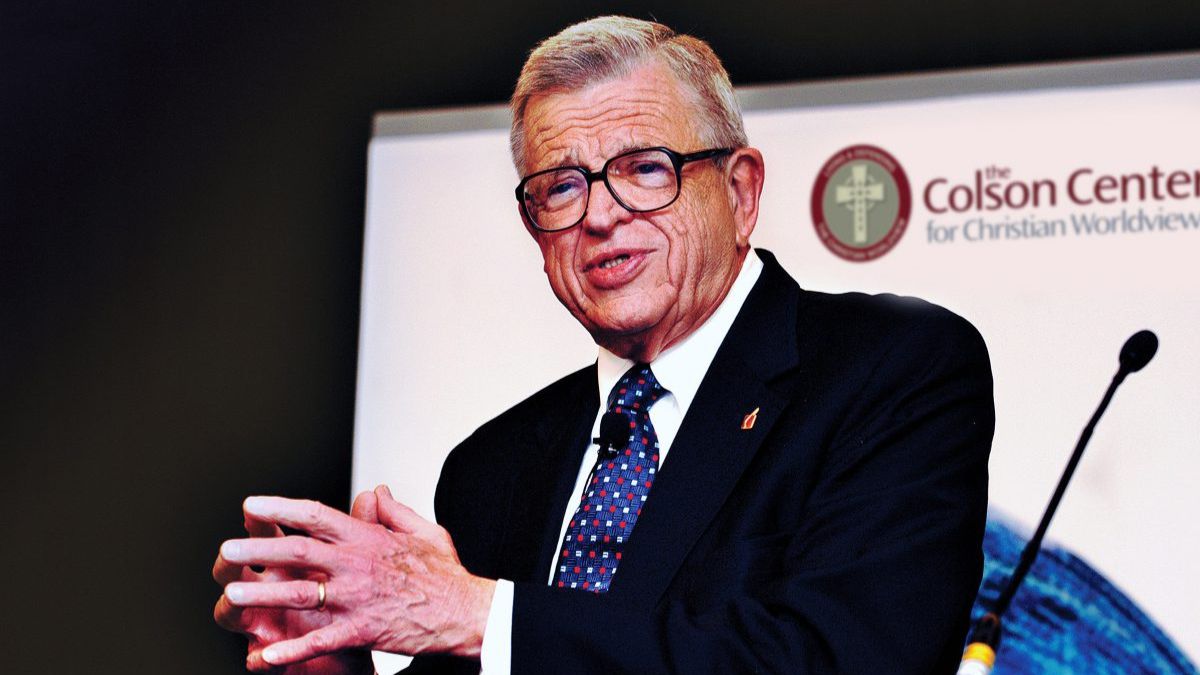

A New Agenda for Tech and Family
For the sake of human flourishing, it’s time to ask where tech is taking us and why.
02/6/25
John Stonestreet and Shane Morris

In Lewis Carroll’s Alice in Wonderland, Alice asks the Cheshire Cat, “Would you tell me please, which way I ought to go from here?”
The wily cat replies, “That depends a good deal on where you want to get to.”
Alice than says, “Well, as long as I get somewhere.”
“Oh, you’re sure to do that,” the cat replies, “as long as you walk far enough.”
The inseparable and essential relationship between the destination and the journey should be obvious, but it often isn’t. This is especially true of technology, which is progressing at a dizzying pace and taking us all along for the ride, often without a clear idea of where we’re going or why.
From artificial intelligence to assisted reproduction to social media to automation to assisted suicide, new developments in technology are transforming how we live, love, communicate, procreate, and die. Few who are leading this technology seem willing or able to explain our destination. Is the purpose efficiency? Maximizing utility and pleasure? Making tech billionaires richer? With technology so pervasive and powerful, it’s essential to ask, like the cat, where society should go before deciding where it will go.
A new project to explore how technological progress should serve human flourishing has united a stellar group of conservative leaders. A Future for the Family: A New Technology Agenda for the Right is asking where technology should take us. In a statement of principles that was just published in First Things, these leaders state:
A new era of technological change is upon us. It threatens to supplant the human person and make the family functionally and biologically unnecessary. But this anti-human outcome is not inevitable. Conservatives must welcome dynamic innovation, but they should oppose the deployment of technologies that undermine human goods.
The statement gives numerous examples. For instance, medical interventions in the form of IVF and surrogacy bypass the body in reproduction, turn vulnerable women into wombs-for-rent and commodify the smallest lives, often fatally. Technological efforts to control life and death have led to a slippery slope of euthanasia and assisted suicide on one hand, and a transhumanist quest for immortality on the other. Ever-expanding access to pornography and “digital prostitution” has turned sex into a product that propels addiction, predates on children, and corrupts essential relationships. And unchecked algorithms of social media have rewired children’s brains and hijacked their most vulnerable stages of development in the name of profit.
In short, our technologies promise human connection and productivity while in actuality isolating users and placing us all under constant surveillance. This so-called “progress” has left life more disembodied, removing image bearers from the natural world, and making physical community and human contact an afterthought.
The consequences have been especially terrible for the family, which is the institution most essential for human flourishing. Our technologies promise to redefine, renegotiate, and even redesign this fundamental aspect of how God made the world, but cannot deliver. “The triangle of truisms, of father, mother and child,” G.K. Chesterton wrote, “cannot be destroyed; it can only destroy those civilizations which disregard it.”
Nothing could be more foolish than to place the future of families in the hands of tech companies whose sole motives are profit and efficiency. Good policy guidance, beginning at the federal level, is needed. This “Future for the Family” statement proposes ten sound principles to direct our technological journey.
The list of signatories and organizations behind “A Future for the Family” is impressive to say the least. Together, these experts in policy, social science, family, and theology offer what has long been missing in the rush toward technological “progress.” This is a project Christians can celebrate, join, and support.
Visit aFutureForTheFamily.org to read the statement and its guiding principles, as well as a list of curated resources. If there will be lasting change in our national journey of technology, it will be because we all choose to live differently. This statement is a clear and much-needed reminder that technology should serve families, not the other way around.
Have a Follow-up Question?
Related Content

© Copyright 2020, All Rights Reserved.














